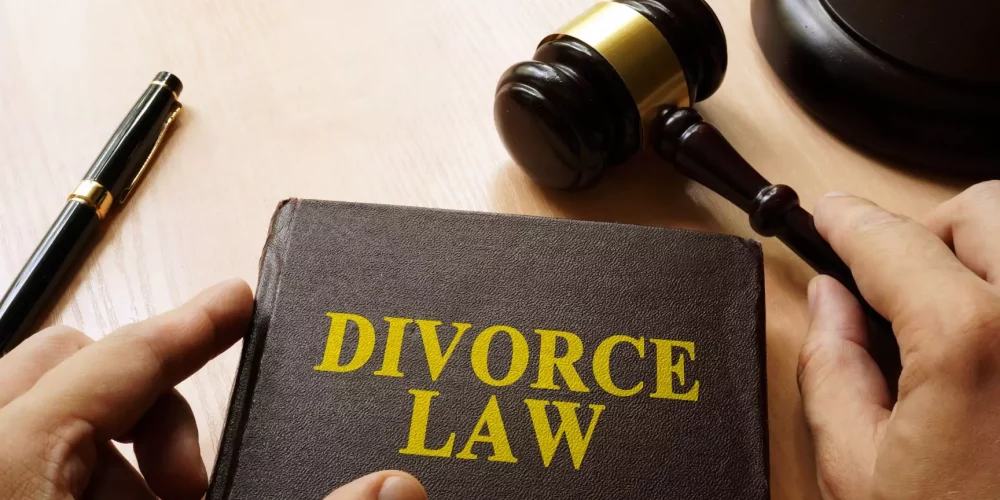The decision to get divorced doesn’t come easy.
You’ve likely tried everything in your power to make your marriage work, but sometimes, even the best intentions are fruitless.
As you navigate the separation process, it’s important to understand divorce laws in Colorado. That way, you can make an informed, well-thought-out plan for the future.
This is especially important if children are involved.
Here we’ll offer a quick guide to divorce in Colorado, including information on common-law marriage in Colorado, the steps to divorce in Colorado, and how to prepare for Denver family court.
Take a deep breath, and let’s get started.

Basic Requirements for Filing for Divorce in Colorado
While the ultimate goal of all divorce and legal separation is the same, the path to get there varies from state to state.
If you and your spouse currently reside in the state of Colorado, you have to meet several requirements before filing for divorce.
Colorado is considered a “no-fault” divorce state, which means the only ground for divorce is that the marriage is irretrievably broken. Adultery, abuse (physical or otherwise), and other misconduct are not factors when dividing property, awarding alimony, or granting a divorce.
An irretrievable breakdown simply means that the two parties can no longer get along, and there’s no chance for reconciliation.
One or both of the spouses must reside in Colorado for a minimum of 91 days before filing divorce paperwork. If child custody is also an issue, under the Uniform Child Custody Jurisdiction and Enforcement Act, a child must reside in Colorado for at least 181 days prior to filing before Colorado is considered the “home state” of the child.
Step-parent adoption in Colorado grants the step-parent the same legal rights and obligations as the biological parents during the divorce process, as long as the adoption took place before the divorce paperwork was filed.
Ways to Get Divorced in Colorado
There are several ways to end your marriage in Colorado; declaration of invalidity, legal separation, or divorce.
Declaration of Invalidity
In Colorado, an annulment is called a “Declaration of Invalidity”. When a marriage is annulled or declared ‘invalid,’ it is as if the marriage never existed. Marriages are declared invalid as of the date of the (attempted) marriage.
You must meet certain requirements to qualify for a declaration of invalidity, including:
- One or more of the parties lacked the ability to consent to the marriage
- One of the spouses cannot physically consummate the marriage, and the other person was unaware of this impediment
- One of the spouses was underage at the time the marriage took place
- One of the parties committed fraud to convince the other party to agree to the marriage or was under duress at the time
- One or both parties agreed to the marriage as a dare or joke
- The marriage was prohibited by Colorado law (incest or multiple marriages)
Each requirement comes with its own statute of limitations, so be sure that you file all necessary paperwork within the designated timeframe.
Legal Separation
People often refer to a divorce as a legal separation, but it’s important to note these are different according to divorce laws in Colorado.
During a legal separation, spouses divide their assets and choose to live apart but are still technically married under Colorado law. That means you cannot remarry or engage in any other behavior deemed illegal.
In order to legally separate in Colorado, both parties must come to a separation agreement that includes property division, child custody and support, and alimony.
For a legal separation, a petition must be filed.
Divorce
Getting divorced ends your marriage in Colorado.
Colorado recognizes common-law marriage. It is interesting to note that couples of a common-law marriage in Colorado must follow the same steps and legal procedures to get divorced as a legally married couple.
A contested divorce means that the two parties cannot agree on the terms of the divorce. An uncontested divorce goes much quicker because both people agree on all the terms.
The first step involves one spouse filing a petition with the court. It does not make a legal difference as to which spouse files the initial paperwork or if both do.
Both spouses must provide complete financial disclosure.
The court will conduct an Initial Status Conference to set specific deadlines for filings and set dates for any court hearings, if necessary.
During the discovery phase of divorce in Colorado, both attorneys will delve deeper into the parties’ financial records, assets, debts, education, and employment to fairly divide property and calculate both spousal and child support.
In cases where the two parties cannot agree on things like moving out and child visitation, a temporary orders hearing will be held. Here, the court will order temporary arrangements that both parties must follow until the divorce is finalized.
This last step occurs during the permanent orders hearing, where all settlement agreements are made final.
Divorce Mediation
Colorado requires that the parties participate in mediation (settlement meetings) often before permanent orders are set. During mediation (or a settlement conference), both spouses meet with an impartial third party to discuss the issues and try to reach an agreement.
Lawyers are usually present during these meetings as well. Mediation is designed to be cordial with non-confrontational communication.
Experienced Attorneys Know the Divorce Laws in Colorado
When facing a divorce in Colorado, you’re already mentally and emotionally overwhelmed. Trying to understand the divorce laws in Colorado will only create more unnecessary stress.
Allow one of the experienced Denver divorce lawyers at Shapiro Family Law to alleviate your stress by offering professional legal assistance.
We specialize in family law and understand how upsetting the divorce process can be. You don’t have to deal with Denver Family Court alone.
See a full list of our services here and contact us for a consultation so we can streamline your separation and get you back on your feet today!
